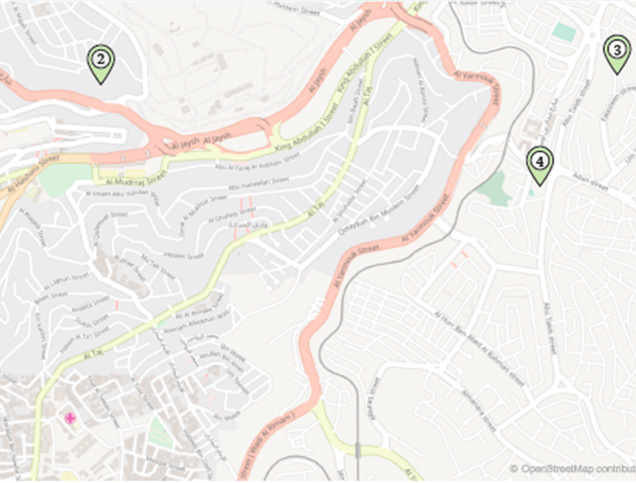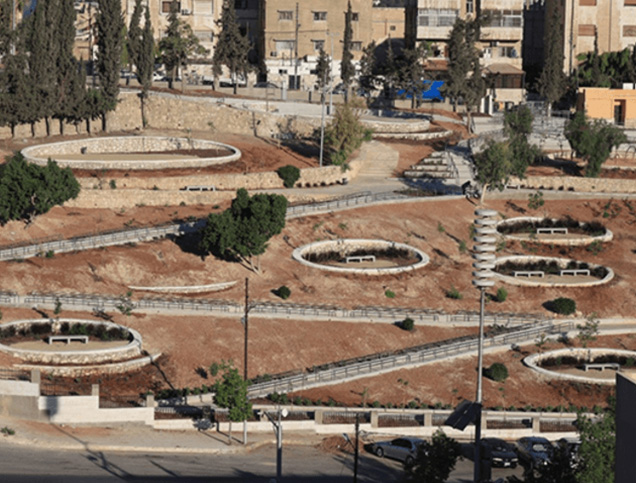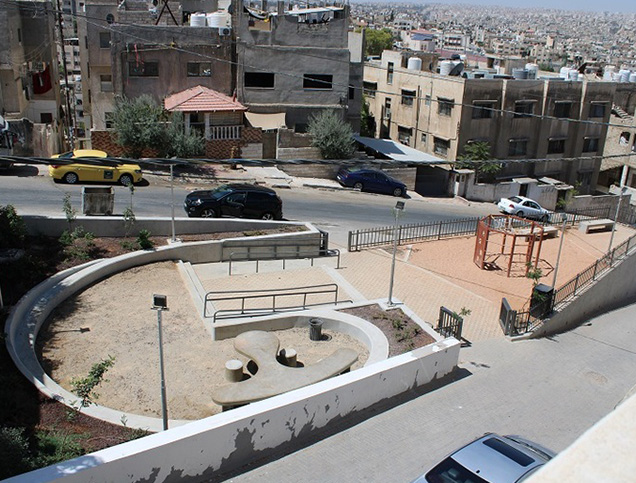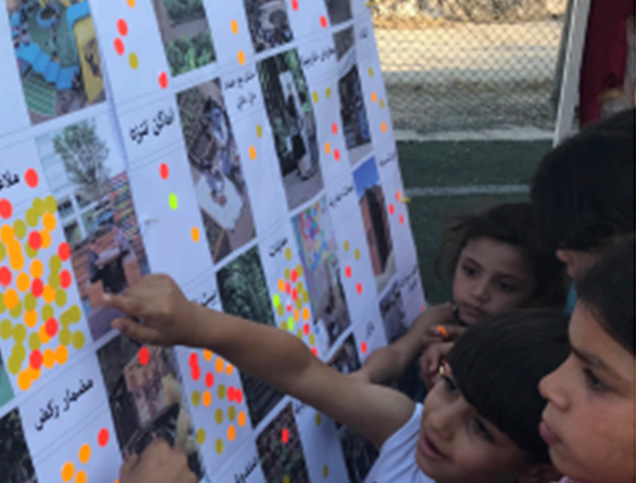
Close

Approach Words: Integrated City, Participatory Approach, Urban Livability
Public Policy Instruments: Communicative, Organization, Physical Intervention, Planning
Improving Living Conditions in Disadvantaged Areas of Amman (ILCA) is an urban regeneration project established to enhance existing Public Open Spaces (POS) and incorporate new Green Infrastructure (GI) elements in selected areas of East Amman.1 The project was developed in response to the partially unplanned infrastructure of East Amman’s neighborhoods, which has led to a scarcity of public open spaces, a lack of greenery, and poor connectivity of sidewalks, stair networks, and streets.2
As such, the project seeks to achieve the following three main objectives:

Title: ILCA Projects Sites in East Amman.
Source: Click Here

Title: Mahmoud Al-Qudah Park – A Key Site Selected for Project Implementation
Source: Click Here

Title: The Seventh Stair on Al-Quds Street (before and after rehabilitation).
Source: Click Here

Title: Community Engagement in the design phase of the projects of Mahmoud Al-Qudah Park in Nasr District.
Source: Click Here
The project consists of three main phases:
Phase (1): Direct intervention in specific locations in East Amman, chosen as pilot sites to implement green infrastructure.6 The project emphasizes initiatives for greening, rehabilitation, enhancing walkability, and improving transport access.7 Specifically, the interventions included the following activities:
These pilot projects play a major role in protecting the environment by filtering air and water pollutants, preserving local biodiversity, mitigating the impact of urban heat waves, and stabilizing soil to reduce erosion.13
Phase (2): Replication of pilot activities implemented in Phase (1) in new locations and extensions of existing public open space networks.14
Phase (3): Development of a handbook titled “Stepwise Implementation Strategy: 11 Steps for Participatory Green Infrastructure Projects”.15 This handbook was developed after the implementation of the pilot projects16 to guide Greater Amman Municipality (GAM) employees in planning and implementing Urban Green Infrastructure (UGI) projects in Public Open Spaces (POS) using an inclusive participatory approach.17

Consultant/Designer
It should be noted that the project adopts a participatory approach by encouraging community involvement in the research, design, and management processes of newly established or revitalized green infrastructure networks.18 Participatory design workshops with the local community were held, and final designs were shared with the communities on social media to gather feedback through dedicated online surveys.19 As a result, integration and social cohesion are on the rise.
The German Federal Ministry for Economic Cooperation and Development (BMZ) initiated the project in partnership with the Ministry of Environment of Jordan.20 It is implemented by Deutsche Gesellschaft für Internationale Zusammenarbeit (GIZ) and Greater Amman Municipality (GAM).21 The project’s total budget is $ 5,500,000,22 funded by the German Federal Ministry for Economic Cooperation and Development (BMZ).23
Project Link
Endnotes
References